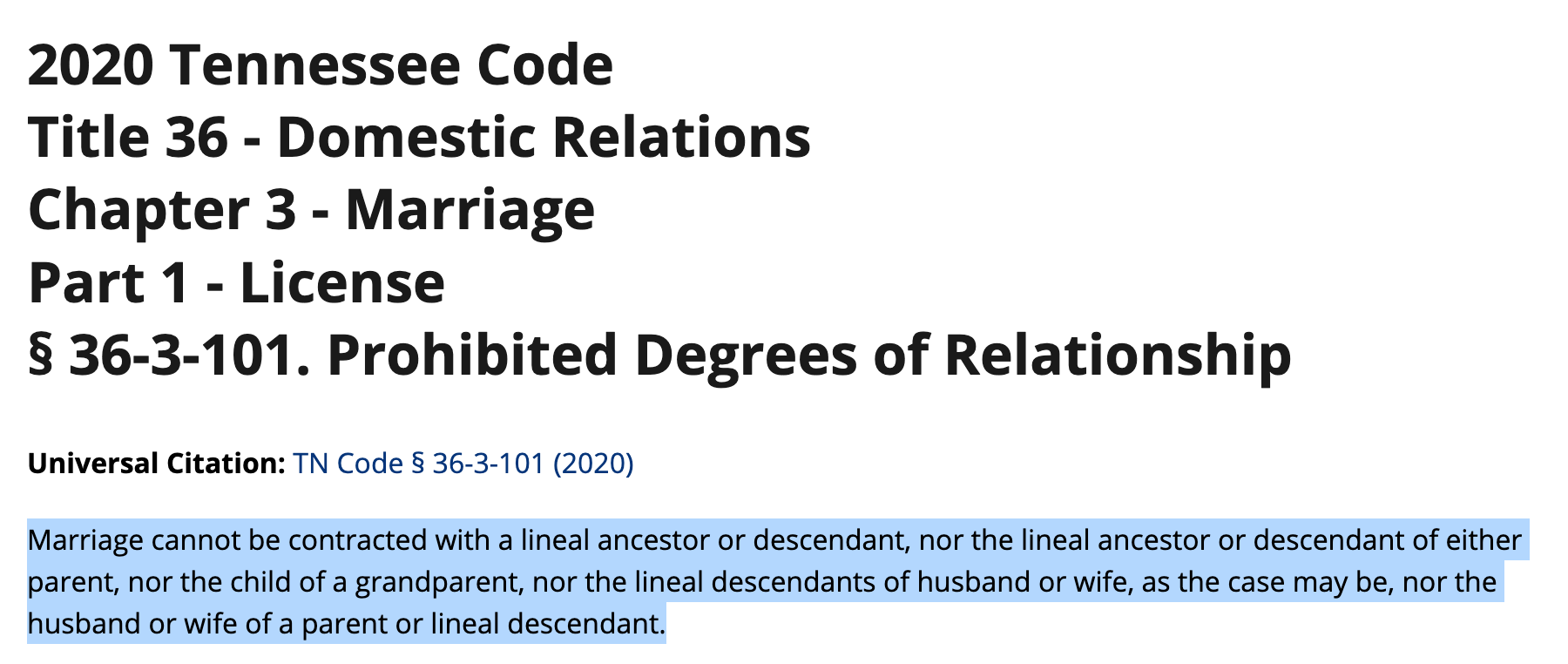The initial version of the bill deleted the sections of Tennessee law that established and described the marriage licensing system in the state, including the parts that established minimum age restrictions. Despite that fact, House sponsor Leatherwood erroneously declared, “This bill changes nothing in the current law regarding marriage.” That was wildly false when he said it back on
March 9, at which time the draft of the legislation effectively evaporated the entire marriage licensing system in Tennessee.
However, the amended version from March 22 did not destroy the marriage license, but rather
added a second way for the state to recognize a marriage, and a second way for a couple to have their marriage formally and officially recorded.
The existing marriage license would retain its age restrictions, so it would remain true that nobody aged under 17 years could be legally
permitted by the state to marry. However, assuming the “record of marital contract at common law” was created and was legally and constitutionally robust, operated as planned, and created a legal recognition, by the state of Tennessee, of common law marriages, then it does appear to allow for marriages involving parties aged under 17 years.
Minimum age restrictions are conspicuously absent from the text of the amended bill. Readers can verify this for themselves by reviewing
that document. The bill would require the husband and wife to state their dates of birth on the contract, but does not specify any restrictions or obligations on the basis of age.
This is even more noteworthy in light of the fact that the legislation does contain other restrictions. For example, the husband and wife must affirm, under penalty of perjury, that they are not family relatives, not drunk, not acting under duress, and not already married. Yet there is no requirement for them to affirm that neither of them is aged under 18 or 17 or even 16 years.
In order for the county clerk to file a record of the common law marriage, under the legislation the husband and wife must present a valid state-issued ID. However, the clerk is not required to visually inspect those IDs to ensure the date of birth of each participant is earlier than a certain date 17 years ago, for instance — a basic check that happens countless times each day in beer and liquor stores across Tennessee.
In fact, the absence of an age restriction is even more glaring when one contemplates the fact that some of the text of the bill was clearly borrowed from the existing marriage license restrictions in Tennessee law. For example, here’s how HB 0233/SB 0562 forbids incestuous common law marriages:

And here’s how the existing marriage license statute expresses the same ban:

Clearly, the drafters of the 2022 bill were familiar with the ways in which existing Tennessee law regulates marriage, and replicated some of those rules and even the wording used to outline them. For whatever reason, the minimum age restrictions were not included in that transferral.
The bill currently before the General Assembly would create a new, second way in which the state recognizes marriages. That legislation would not prohibit marriage for those aged under 17 years old, and indeed does not establish any minimum age restrictions at all. Therefore, the claim that the 2022 legislation would “legalize child marriage” is accurate.

 www.wkrn.com
www.wkrn.com





